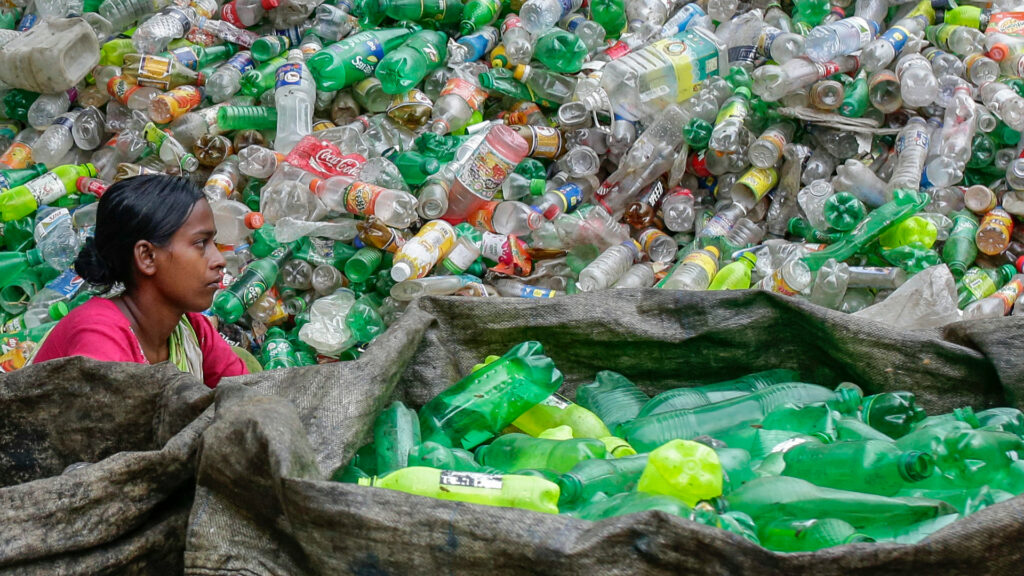The Environmental Impact of Biodegradable Bags in Bangladesh
Biodegradable bags have emerged as a popular alternative to traditional plastic bags due to their eco-friendly nature. In Bangladesh, where plastic pollution poses a serious environmental threat, the adoption of biodegradable bags can have significant positive implications.
Understanding the Benefits of Biodegradable Bags
Biodegradable bags are designed to break down into natural components when exposed to the environment, reducing the amount of plastic waste that ends up in landfills or oceans. In Bangladesh, where waste management infrastructure may be lacking, biodegradable bags offer a sustainable solution to mitigate environmental harm.
The Challenge of Proper Disposal
While biodegradable bags offer environmental benefits, proper disposal remains a critical consideration. In Bangladesh, promoting awareness about the proper disposal of biodegradable bags is essential to ensure that they can decompose efficiently and minimize their impact on the ecosystem.
A Sustainable Future for Bangladesh
Looking ahead, the increased use of biodegradable bags in Bangladesh can pave the way for a more sustainable future. By embracing biodegradable alternatives, the country can reduce its reliance on traditional plastics and make significant strides towards a cleaner and healthier environment for future generations.
Government Policies Boosting the Eco-Bag Initiative
In recent years, government policies have played a pivotal role in propelling the eco-bag initiative to the forefront of sustainable practices globally. This strategic intervention signifies a significant shift towards environmental consciousness and sustainability.
Governments worldwide are realizing the urgency of combating plastic pollution and promoting eco-friendly alternatives. By enacting legislation that incentivizes eco-bags over traditional single-use plastic bags, policymakers are actively steering consumer behavior towards greener choices.
Legislative measures such as imposing taxes on single-use plastics, mandating the use of biodegradable materials, and banning plastic bags altogether have spurred the demand for eco-friendly bags. These policies not only encourage eco-conscious habits among individuals but also foster innovation and market growth in the eco-bag industry.
Furthermore, government-backed initiatives that provide subsidies or grants to businesses transitioning to eco-friendly packaging solutions have catalyzed widespread adoption and acceptance of eco-bags. Such support mechanisms reinforce the economic viability of eco-bags and emphasize the importance of environmental stewardship.
By aligning economic incentives with environmental objectives, government policies have effectively accelerated the transition towards sustainable practices. This collaborative effort between policymakers, industries, and consumers is driving a paradigm shift towards a more eco-conscious society, where eco-bags are championed as symbols of sustainability and responsible consumerism.
Public Reception and Usage of Biodegradable Bags
Biodegradable bags have garnered significant attention as a sustainable alternative to traditional plastic bags. Public reception towards these eco-friendly bags has been largely positive due to their environmental benefits. However, to ensure widespread adoption, it is crucial to educate consumers on the proper usage and disposal of biodegradable bags.
Key Considerations for Optimal Usage
One common mistake is treating biodegradable bags the same as regular plastic bags. It’s important to store them in a cool, dry place away from sunlight to maintain their integrity. Additionally, use them within their recommended shelf life to prevent premature degradation.
Disposal Practices to Emphasize
Proper disposal is essential for biodegradable bags to decompose effectively. Encourage users to dispose of them in designated composting bins or recycling facilities rather than conventional waste bins. This ensures that the bags break down efficiently without harming the environment.
Future Prospects of Eco-Friendly Packaging in Bangladesh
Breaking Down the Headlines
The future prospects of eco-friendly packaging in Bangladesh are gaining significant attention due to the increasing environmental concerns and the shift towards sustainability in the packaging industry. With consumers becoming more environmentally conscious, the demand for eco-friendly packaging solutions is on the rise.
The Bigger Picture
In the broader context, the adoption of eco-friendly packaging in Bangladesh not only addresses environmental issues like plastic pollution but also presents economic opportunities. Sustainable packaging practices can reduce waste, improve brand reputation, and open up new markets for businesses.
What This Means Going Forward
Looking ahead, the future prospects of eco-friendly packaging in Bangladesh suggest a growing market for sustainable packaging materials such as biodegradable plastics, recycled paper, and compostable packaging. Companies investing in eco-friendly packaging options are likely to enhance their competitiveness, meet regulatory requirements, and appeal to a wider consumer base concerned about the environment.
